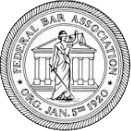Can I Discharge Income Taxes In Bankruptcy?

It is possible to discharge income tax obligations in bankruptcy; however, taxes must meet certain requirements to be dischargeable. Taxes that fail to meet such requirements fall within the Bankruptcy Code’s exception to discharge, found in 11 U.S.C. § 523(a)(1). While discharging income taxes can be complicated, there are three basic rules that apply:
- Three Year RuleTaxes that are a priority claim under 11 U.S.C. § 507(a)(8) are not dischargeable. This includes taxes for which a return, if required, is last due, including extensions, after three years before the date of the filing of the petition. 11 U.S.C. § 507(a)(8)(A)(i).In other words, under the three year rule, the tax must have come due at least three years prior to the bankruptcy filing date (including extensions) to be eligible for discharge. Here is an example:The debtor owes federal income taxes for years 2013, 2014, and 2015. The debtor did not have an extension to file the returns for any of these years. Consequently, the return for 2013 was due on 4/15/2014, the 2014 return was due on 4/15/2015, and the due date for the 2015 return was 4/18/2016 that particular year. The debtor filed a bankruptcy petition on 5/26/2020.
Because the above taxes all came due no later than 4/18/2016, and more than three years passed between 4/18/2016 and the 5/26/2020 bankruptcy filing date, all of the taxes meet the three year rule. But what if Debtor obtained a six-month extension to file the 2015 return, thereby extending the deadline to October 18, 2016? The tax still meets the three year rule because the bankruptcy petition was filed after October 18, 2019.
Here is an example of tax that does not satisfy the three year rule, and therefore cannot be discharged:
The debtor has an unpaid debt for tax year 2018. The 2018 return was either due on 4/15/2019 or 10/15/2019, depending on whether the debtor had an extension to file the return. The time period between the deadline for filing the 2018 return and the 5/26/2020 bankruptcy filing date was well under three years, making it a priority tax claim.
- 240 Day RuleAnother type of priority tax claim not eligible for discharge is a tax that was assessed within 240 days before the date of the filing of the bankruptcy petition (subject to tolling). 11 U.S.C. § 507(a)(8)(A)(ii). An assessment is a recording of the amount a taxpayer owes the government. The Internal Revenue Service has a procedure for assessing additional tax in certain situations. For example, the I.R.S. may assess additional tax when it finds that the tax payer’s income was understated, or the tax payer was not eligible to take certain deductions on the return.The 240 day period can be “tolled”, or extended, due to offer in compromises that are pending or in effect, and any previous bankruptcy filings, during the 240 day period. The way to determine whether there have been any assessments and when they occurred is by reviewing an account transcript obtained from the I.R.S. The account transcript shows when the return was due, when it was filed, assessment dates, and other activity on the account for each tax year.
- Two Year RuleIt is not possible to discharge income tax debt without filing a tax return. Furthermore, the tax return must be filed more than two years prior to the bankruptcy petition date. Under 11 U.S.C. § 523(a)(1)(B)(ii), a tax debt is excluded from discharge where the return was filed within two year of the bankruptcy filing.
All three of the above rules must be met for tax debt to be eligible for discharge. Moreover, if the debtor made a fraudulent tax return, or willfully attempted in any manner to evade or defeat such tax, the tax debt is excluded from discharge. 11 U.S.C. § 523(a)(1)(C). A debtor with a significant amount of priority non-dischargeable income tax debt should consider the benefits of a Chapter 13 bankruptcy. A Chapter 13 repayment plan can be used to pay the tax debt in full over a three to five year period, plus accrued tax penalties are usually dischargeable as a general unsecured debt.

REPRESENTATION YOU DESERVE
Here at Alcock and Associates our team and staff are dedicated to helping and representing YOU. The first step is to understand your case. We will take the time to get to know you and your legal situation so that we are best able to answer all of your questions. After your initial consultation with our attorneys, you will know what you are facing and what can happen to your case.
EVERY CONSULTATION IS COMPLETELY FREE AND COMPLETELY CONFIDENTIAL.
Top Rated Phoenix Attorneys






